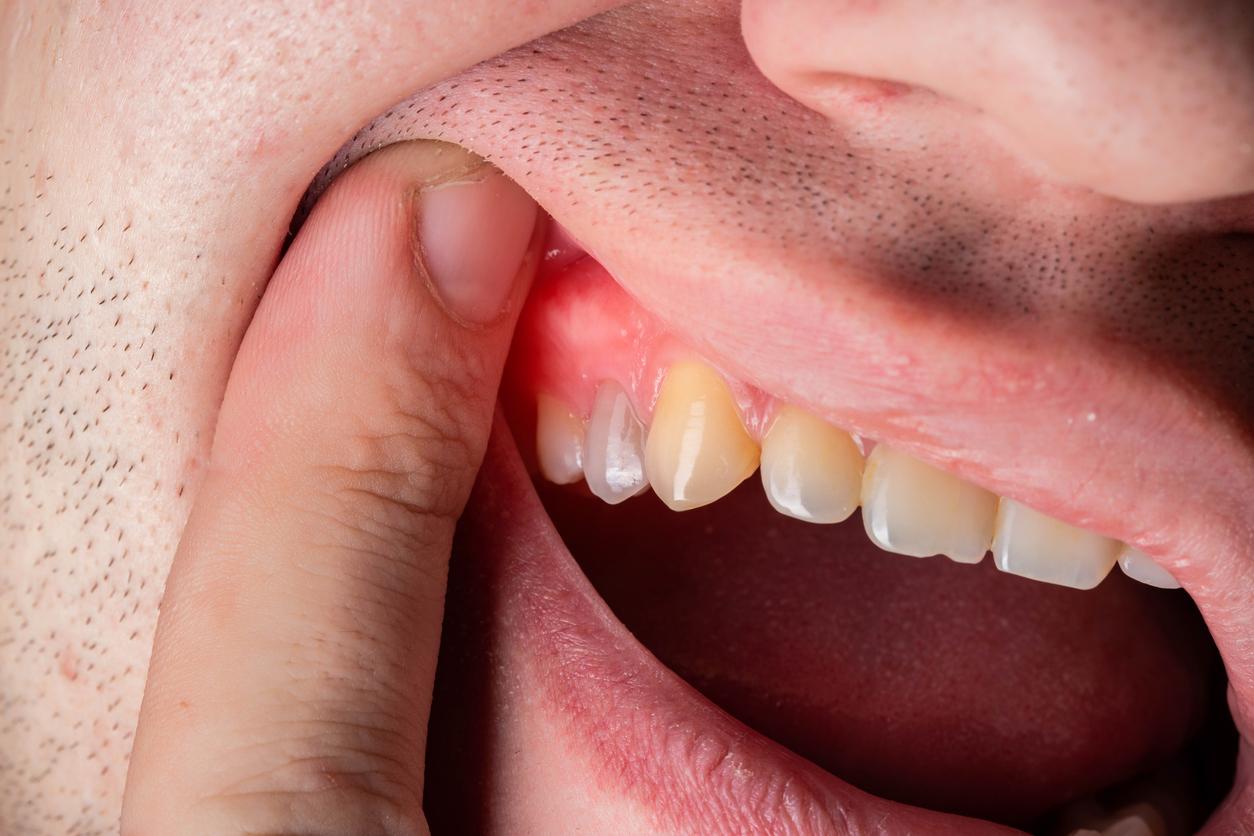Periodontitis, an inflammation of the gums, can promote fibrosis and increase the risk of atrial fibrillation, a heart rhythm disorder.

- Severe periodontitis affects 19% of the world’s adult population, or more than a billion people worldwide.
- Periodontitis promotes fibrosis, scarring of the left atrial appendage of the heart.
- A study showed that the more severe the periodontitis, the more fibrosis, leading to a risk of atrial fibrillation.
Severe periodontitis affects approximately 19% of the world’s adult population, or more than a billion people, according to theWorld Health Organization.
Periodontitis is a chronic inflammation of the tissues supporting the teeth. It is characterized by red, swollen gums that bleed easily. If left untreated, it can lead to more serious problems, such as tooth loss.
Fibrosis is favored by inflammation of the gums
A study, published in the journal JACC: Clinical Electrophysiology, has showed a link between periodontitis and fibrosis. Chronic gum inflammation can trigger a systemic inflammatory response, thereby promoting fibrosis in cardiac tissue. “Periodontitis is associated with inflammation [présente depuis longtemps] and inflammation plays a key role in the progression of fibrosis and atrial fibrillationexplains Shunsuke Miyauchi, one of the authors, in a communicated. We hypothesized that periodontitis promotes fibrosis.”
Fibrosis is the scarring of the left atrial appendage (LAA), a small cavity in the left atrium of the heart, which can lead to an irregular heartbeat called atrial fibrillation. This is defined by health insurance such as a heart rhythm disorder that causes palpitations. Age, obesity, diabetes, sleep apnea and hyperthyroidism are risk factors. It can lead to serious complications, such as blood clots, stroke or heart failure.
Scientists studied health data from 76 patients with heart disease to test the hypothesis that periodontitis promotes fibrosis and therefore atrial fibrillation. The researchers also analyzed tissue samples from the participants’ AAGs.

Periodontitis is a risk factor for atrial fibrillation
The researchers were able to observe that the more severe the periodontitis, the more severe the fibrosis. They concluded that people with periodontitis had a higher risk of developing atrial fibrillation.
“This study provides evidence that periodontitis may worsen fibrosis and be a new risk factor for atrial fibrillation”indicates Yukiko Nakano, one of the authors, who hopes that with this work, this disease can be included among the risk factors.
“Additional evidence is needed to establish that periodontitis causally contributes to atrial fibrosis and that periodontal care can modify fibrosisshade Yukiko Nakano. One of our goals is to confirm that periodontitis is a modifiable risk factor for atrial fibrillation and [d’inclure les dentistes] to the overall management of atrial fibrillation. Periodontitis is a modifiable risk factor (…) for atrial fibrillation.“
It should be emphasized that periodontitis is a preventable and treatable condition, particularly with good maintenance of oral hygiene and regular visits to the dentist.
















